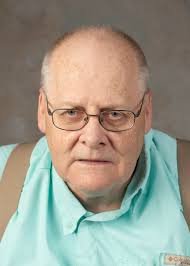By Greg Markley
The year 1997 marked six years since the U.S. ousted Saddam Hussein’s regime in Iraq. It was a short war and a clear triumph for us. Yet an estimated 25% of those who fought returned with an undefined health problem. So a medical expert traveled to Alexander City from Bethesda, Maryland to inform soldiers of progress on what was then called Gulf War Syndrome.
At a Russell Corporation building, a parking lot was filling up. People from three or more Alabama counties participated. At the appointed hour, a somewhat short and wiry man in his mid-fifties appeared. He spoke for 45 minutes, and answered all questions; and there were many. Attendees’ concerns were not all assuaged, but Dr. Fauci was shown to be a very bright and gracious man.
Now 79 years old, Anthony Fauci is in his 36th year directing the National Institute of Allergy and Infectious Diseases. He has dealt with epidemics such as HIV, SARS, swine flu, avian influenza, Ebola and Zika. Since March, he has been a fixture on TV during the Coronavirus briefings with President Donald Trump. Fauci’s performance is approved by 78% of those polled recently. Most politicians must be envious!
“You stay completely apolitical and non-ideological,” he said of working with six presidents. “I’m a scientist and I’m a physician. And that’s it.” On the web, a move is afoot for him to win a magazine’s “Sexiest Man Alive” for 2020. He said: “I never thought I would be a candidate for that. Absolutely not! When they show this to me at my age I say,” Where were you when I was 30?”
Prior to the Coronavirus, Fauci was best known for drawing attention to the developing HIV/AIDS crisis in the early 1980s.
“I was used to treating people who had little hope and then saving their lives—that was wonderful. But, with AIDS I saved no one. It was the darkest time of my life,” he told the New Yorker. He suddenly changed the focus of his work by taking suggestions from gay activists.
We move ahead to the late 1990s. Fauci was a good choice to come to Alabama and address the veterans as he already was a leading epidemiologist. The Gulf War ended on Feb. 28, 1991 with an American and allies’ victory. (The pre-war operations were tagged Operation Desert Shield; the war itself was named Operation Desert Storm.) Gulf War syndrome was a chronic disorder with several symptoms and a description was lacking even six years post-war. Soldiers at the Alexander City meeting said they had symptoms such as fatigue, muscular pain, logical thinking weaknesses, the inability to sleep regularly and diarrhea. This meant that a good portion of them did not have steady employment. Government projections said 250,000 of the approximately 700,000 U.S. veterans suffer from Gulf War Illness.
Possible causes of the illness were: sarin, cyclosarin and elements from the oil well fires that Saddam Hussein’s soldiers set as they were withdrawing, pesticides and bromide. The top-three general symptoms are terminal tumors (33%), memory problems (32%) and fatigue (23%).
Now, 23 years after Fauci assisted the many attendees at the Alexander City event, a strange thing has happened just as the doctor is having perhaps his finest hour. According to Politico, he is suspected by fringe elements of being a conspirator against President Trump. This crazy idea surfaced not long after Fauci looked shocked when Trump said the country might be “reopened by Easter.”
Recently, the New York Times discovered that more than 70 accounts on Twitter have promoted the hashtag #FauciFraud, with some tweeting up to 80 times a day.
“There seems to be a concerted effort on the part of Trump supporters to spread misinformation about the virus aggressively,” said Carl Bergstrom, a professor at the University of Washington who studies misinformation. Fauci now has a security detail from the Department of Health and Human Services after serious threats. A fairly mild anti-Fauci trip read: “Sorry liberals but we don’t trust Dr. Anthony Fauci.”
Fauci had done it all before, “This is serious business,” he said. “We are not overreacting.” Okay. But the idea of the Number 1# doctor in infectious disease being harassed for trying to save all of us is absurd.
It reminds me of those heartless people in New Orleans during Katrina shooting at people in small boats who were trying to escape the storm. Please turn down the voltage, all of you.
Greg Markley has lived in Lee County for 19 of the last 24 years. An award-winning journalist, he has masters degrees in education and history. He has taught as an adjunct in Georgia and Alabama.

